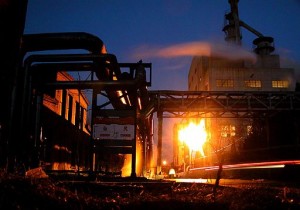Food and Fuel: Chinese Security Issues of the 21st Century
 The dominant themes in the rise of China as a world power depend on an adequate supply of foodstuffs to feed its growing millions, and on fossil fuels to drive industrialisation; many times in the past, Chinese imperial elites have fallen as a result of overpopulation and famine.
The dominant themes in the rise of China as a world power depend on an adequate supply of foodstuffs to feed its growing millions, and on fossil fuels to drive industrialisation; many times in the past, Chinese imperial elites have fallen as a result of overpopulation and famine.
Abandoning her historical isolationism from the West, and mindful of the communist party’s policy of maintaining the material well-being of her people whilst at the same time controlling expressions of political liberalisation, China is keen to develop international trade and diplomacy to achieve her economic aims.
Since the collapse of the Maoist dream of Chinese self-sufficiency, economic forces such as the migration of peasant labour to the growing cities have meant that the government has sought to secure its food supply by engaging with the rest of the world. The country is no longer self-sufficient, there is a shortage of arable land and water supplies. Young middle class Chinese are leaving the land and want a better diet. The country is a net importer of rice and soya bean. Genetically modified crops would increase home yield, but the Chinese are suspicious of the health implications – hence they turn increasingly towards imports. In 2013 they imported 22 million tonnes of cereal, much of it supplied by farmers in the American mid-west. Australian and New Zealand farmers look to China for their external markets to an ever greater extent, whilst the Ukraine offers a potential source of supply as Russian-Chinese ties strengthen. China is strengthening its supply chain by buying up agro-businesses, plantations, joint ventures and cooperatives, as well as transport firms in Africa and Europe.
A similarly aggressive enterprise culture is evident in China’s drive to secure energy supplies. China has just signed a 30 year gas deal with Russia, a country more stable than its present suppliers, along with states in the Persian Gulf and Iran. Russia, though, is and will remain the key partner. In addition to securing its supply chain, Russia could, over the next 10 – 15 years, wean China off her coal dependency, the burning of which causes massive pollution.
Unlike the US, or the UK for that matter, China cannot rely on fracking to extract oil from its massive shale deposits; much of the country is subject to earthquakes and the geology of the oil-bearing shales has not been fully explored.
Securing Russian oil frees China from dependence on American naval power in the Middle East, and reduces the threat of economic sanctions from the West and the US, freeing Russia to pursue a more proactive foreign policy in both the Gulf and the Ukraine.